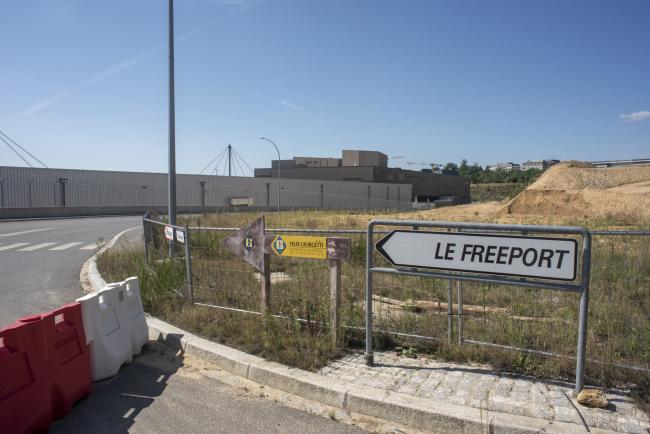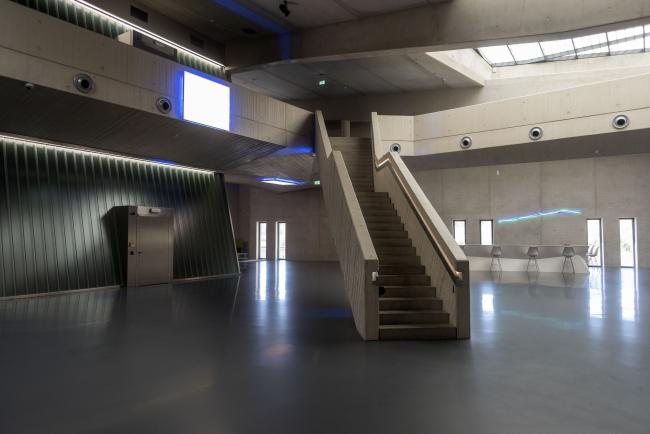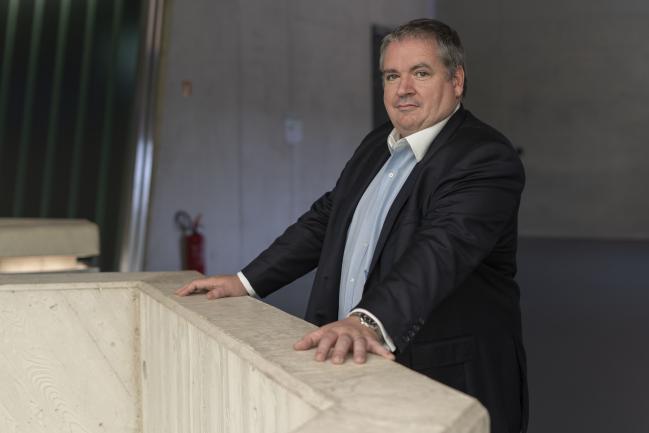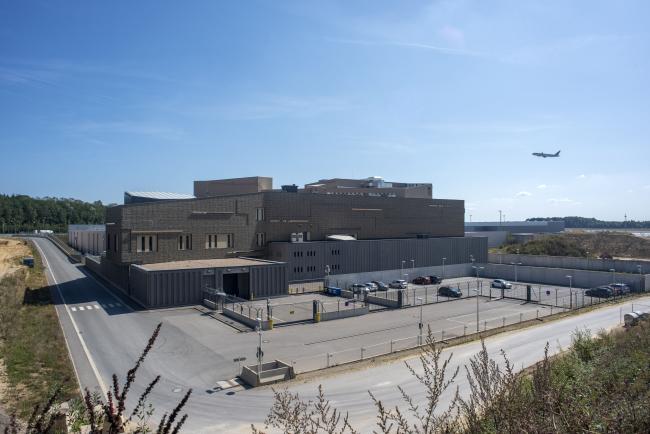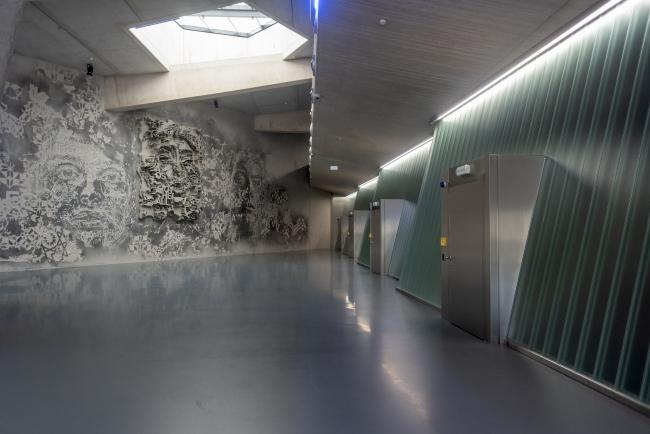(Bloomberg) -- In Prime Minister Boris Johnson’s post-Brexit vision of a dynamic economy unshackled from the European Union, depressed British port cities will come roaring back to life as tax-exempt free ports. A concrete bunker on the edge of Luxembourg’s airport provides a useful reality check.
There, on a side road flanked by dirt banks and a motorway, a black-and-white sign surrounded by weeds indicates you’ve arrived at “Le Freeport.” First impressions don’t smack of a hive of activity, or even intrigue.
That’s because managing a free port has become more of a bureaucratic headache as these tax-free facilities face growing criticism for being conduits of money laundering and tax evasion.
Philippe Dauvergne, a former French customs official, is trying to change that image. He’s the chief executive officer of the facility, a squat 22,000 square-meter (237,000 square-feet) construction on the grounds of Luxembourg’s cargo terminal.
Geneva Scandals
Le Freeport hosted some 800 visitors last year and held an open house in March to showcase its more elegant, Italian-designed interior and demystify what goes on inside. Comparisons with better-known free ports like the one in Geneva, a source of scandals in the past, are misplaced, he says.
“What we want here especially is security, transparency and services,” Dauvergne said in an interview after giving a tour. “We don’t want what’s easy and vague.”
With Brexit still in the balance, the future outline of any British free port is also hazy. After becoming prime minister last month, Johnson set up a panel to establish up to 10 in Britain, creating what the panel said would be as many as 86,000 jobs.
“The first new free ports will be established after we leave the EU, to boost growth and ensure towns and cities across the U.K. benefit from post-Brexit trade opportunities,” his government said in a statement.
‘Singapore-on-Thames.’
However, a Treasury spokesman declined to name any of the planned locations or say how they would compare in size with Luxembourg. Opposition politicians have quickly lined up to criticize the plan, echoing concerns about a post-Brexit Britain becoming “Singapore-on-Thames.”
Barry Gardiner, the U.K.’s shadow secretary for international trade, slammed the project for encouraging tax evasion, money-laundering and the displacement of jobs from other parts of the country.
“We’re a step closer to the prospect of the U.K. becoming a bargain-basement economy,” Gardiner wrote.
Back in Luxembourg, Dauvergne says that Johnson’s team should temper their enthusiasm.
“It’s not a miracle solution,” he warns.
Dauvergne took over managing the Luxembourg complex in 2015 at a difficult time. The LuxLeaks scandal had just hit, exposing how multinationals had benefited from tax rulings in Luxembourg to slash their tax bills -- in some cases possibly in violation of EU state aid rules.
$30 Million Picasso
Free ports do offer a legal way to avoid paying duplicate import duties. For example, a wealthy collector with a $30 million Picasso might temporarily park the painting in a free port to avoid paying import duties twice while she decides whether to hang the painting in her Mediterranean villa or her London townhouse. But the lack of storage time limits in many facilities and their sheer tax-free status arouses suspicion.
“The moment you start something in Luxembourg that’s linked to money, you are seen as heretics by some neighbors,” explains Dauvergne. Hence the transparency campaign that began in earnest in 2017.
Since 2015, the Luxembourg complex has had to comply with the Grand Duchy’s strict anti-money-laundering rules. That means the free port demands the disclosure of the beneficial, or real, ownership of any company that stores goods there. It’s a measure to discourage shell companies that no other free port around the world currently requires.
‘Very Generous’
Le Freeport opened in 2014 and is still working to pay off the $65 million-plus it cost to build. So even as it generates an operating profit, that money is going toward paying down its debt, Dauvergne explains. Nor is the facility as full as he’d like. His predecessor’s targets of 75% occupancy are “very generous,” he says, with the current rate at something over 50%.
Debts, elusive profits and occupancy issues have all made these projects less of a shoo-in than originally envisioned. The Luxembourg complex is co-owned by Swiss art dealer and logistics operator Yves Bouvier who has tried, so far without success, to sell his Singapore free port.
Bouvier is locked in a dispute with Russian billionaire Dmitry Rybolovlev, who accused the Swiss of secretly inflating the price of artworks he secured for the Russian, overcharging him by about $1 billion in the process. Bouvier counters the billionaire was just a repeat customer willing to pay top prices to secure the artworks.
That dispute has not helped, says Dauvergne. “The situation is improving slowly,” he says. “I would prefer it would improve quickly.” While Bouvier believes in the Luxembourg free port and doesn’t want to sell right now, he’s also a realist, says Dauvergne.
“Yves Bouvier is a businessman. So if tomorrow someone comes and presents him with a good offer at the right price, it’s his money.”
